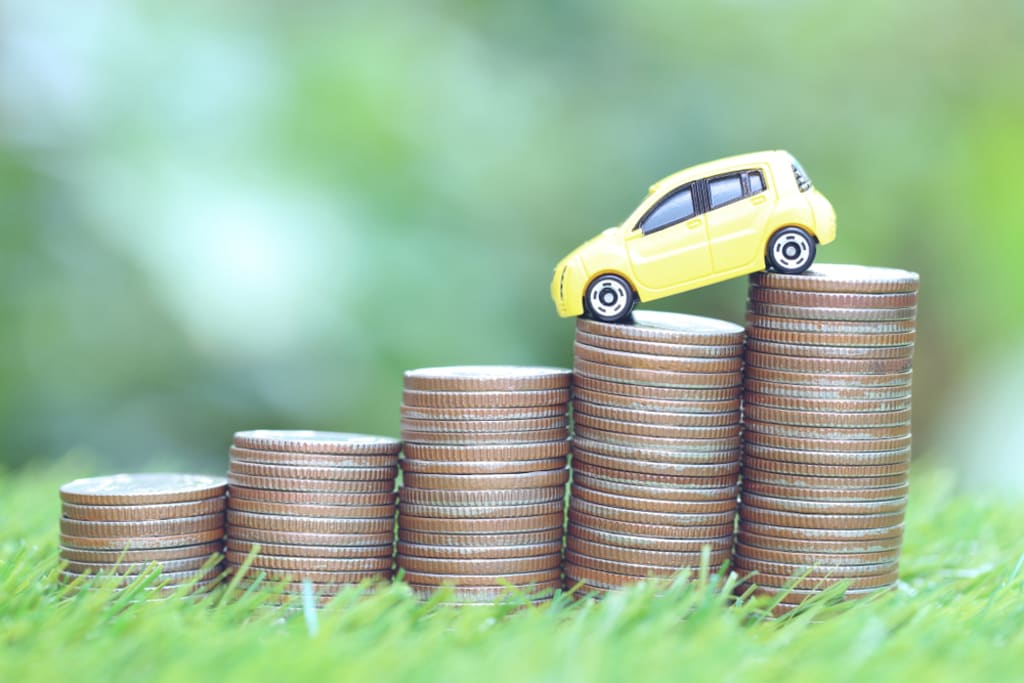The Impact of Car Depreciation: How to Minimise Losses and Maximise Cash for Your Vehicle
Strategies to Preserve Value and Optimize Profitability in the Face of Car Depreciation

Car depreciation refers to the decrease in value of a car over time due to factors such as age, mileage, condition, and market demand. It is a natural and expected part of car ownership.
Understanding car depreciation is crucial for several reasons. Firstly, it helps car owners make informed decisions when buying or selling a vehicle even when you sell cars as scrap to companies like scrap car removal Sydney or other car removal services, you can be familiar with the price.
Secondly, it allows individuals to anticipate the financial impact of depreciation and plan their budget accordingly. Lastly, it enables owners to implement strategies to minimise depreciation and maximise the value of their cars.
Factors Affecting Car Depreciation
- Initial purchase price
The purchase price of a car plays a significant role in its depreciation. Generally, more expensive vehicles experience higher depreciation rates compared to lower-priced cars.
- Age and mileage
The age of a car and the number of miles it has been driven are crucial factors in determining its depreciation. As a car gets older and matches more mileage, its value decreases.
- Brand and model reputation
The reputation of the brand and specific model of a car can impact its depreciation. Vehicles from reputable and well-established brands tend to hold their value better than lesser-known brands.
- Market demand and supply
The supply and demand dynamics of the market affect car depreciation. Popular models in high demand typically depreciate at a slower rate, while less popular or discontinued models may experience higher depreciation.
- Condition and maintenance history
The condition of a car, including its mechanical state and cosmetic appearance, significantly impacts its depreciation. A well-maintained vehicle with a documented service history tends to depreciate less compared to a poorly maintained or damaged car.
Understanding the Financial Impact of Car Depreciation
Rapid depreciation in the early years
Cars often experience the most significant depreciation within the first few years of ownership. This rapid depreciation can result in a significant decrease in the car's value relative to its initial purchase price.
Long-term effects on the resale value
Over time, car depreciation continues to reduce the resale value of a vehicle. Understanding this long-term impact is essential for individuals planning to sell or trade-in their cars in the future.
Calculation of depreciation costs
Calculating depreciation costs involves assessing the initial purchase price, subtracting the estimated resale value, and dividing the difference by the number of years owned. This calculation helps car owners understand the ongoing cost of owning a vehicle.
Comparison with other transportation options
Understanding car depreciation allows individuals to compare the long-term costs of car ownership with alternative transportation options such as public transportation or car-sharing services. This analysis helps individuals make informed decisions based on their specific needs and financial circumstances.
Strategies to Minimise Car Depreciation
Research and choose wisely during the buying process
- Opt for popular and reliable models: Choosing a car model with a proven track record for reliability and popularity can help minimise depreciation.
- Consider the potential resale value: Researching and considering the expected depreciation rates of different car models can help buyers make informed decisions.
Maintain and service the vehicle regularly
- Follow the manufacturer's maintenance schedule: Adhering to the recommended maintenance intervals helps keep the car in optimal condition and minimises depreciation.
- Keep detailed service records: Maintaining comprehensive records of all maintenance and repairs performed on the vehicle can increase its resale value by demonstrating proper care and maintenance.
Avoid excessive mileage and wear and tear
- Limit long-distance commuting or road trips: Excessive mileage can significantly impact a car's resale value, so it's beneficial to limit long-distance driving whenever possible.
- Use alternative transportation methods for certain activities: Utilising public transportation, carpooling, or renting a vehicle for occasional needs can help minimise wear and tear on the primary car.
Protect the car's exterior and interior
- Park in covered areas or use car covers: Protecting the car from environmental elements such as sun, rain, and snow can prevent paint fading and other exterior damage.
- Avoid smoking or eating in the vehicle: Maintaining a clean and odour-free interior helps preserve the car's value and appeal to potential buyers.
Consider timing when selling or trading in the car
- Understand seasonal demand fluctuations: Certain times of the year may have higher demand for specific types of vehicles. Researching and understanding these seasonal fluctuations can help owners sell their cars at more favourable prices.
- Monitor the market and sell during optimal times: Keeping an eye on the market and selling when the demand for the specific model is high can help maximise the resale value.
Maximising Cash for Your Vehicle
Preparing the car for sale or trade-in
- Thoroughly clean the interior and exterior: A clean and well-presented car is more appealing to potential buyers or dealers, which can increase its perceived value.
- Address minor repairs and cosmetic issues: Fixing minor issues like scratches, dents, or broken parts before selling can enhance the car's overall condition and attract higher offers.
Accurate pricing and negotiation strategies
- Research the current market value: Understanding the fair market value of the car based on its make, model, age, mileage, and condition helps set a realistic and competitive price.
- Consider professional appraisal services: Seeking professional appraisal services can provide an unbiased assessment of the car's value, aiding in setting an accurate selling price.
- Negotiate effectively with potential buyers or dealers: Being prepared for negotiations and having a clear understanding of the car's value can help owners secure better deals.
Exploring alternative selling options
- Private sale through online platforms: Selling the car directly to private buyers through online platforms can potentially yield higher returns compared to trading it in at a dealership.
- Consignment or trade-in with reputable dealerships: Consigning the car for sale or trading it in at reputable dealerships can offer convenience and a hassle-free selling experience, albeit at potentially lower returns.
Conclusion
In conclusion, understanding car depreciation is essential for informed decision-making and financial planning. By implementing strategies to minimise depreciation, such as wise purchasing, regular maintenance, and careful use, car owners can maximise the value of their vehicles. Taking proactive steps throughout ownership ensures a more successful selling experience, ultimately maximising cash returns.





Comments
There are no comments for this story
Be the first to respond and start the conversation.